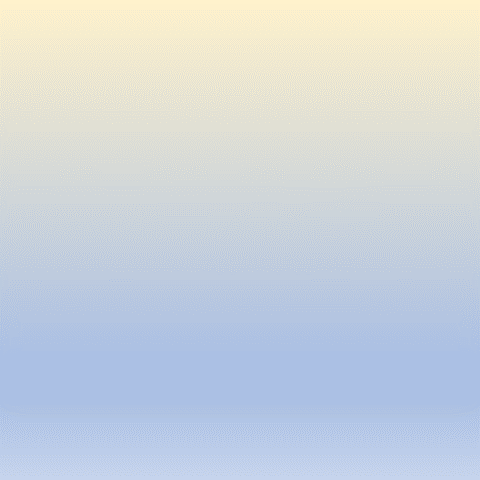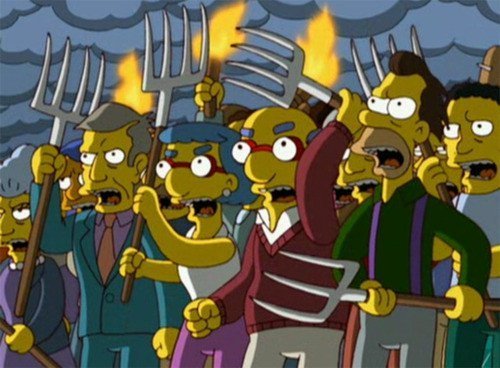🧠 Knowledge is Power — AI Is Its Great Equaliser
From Monks' Manuscripts to Machine Minds: How Power Fears Shared Knowledge
I saw a post on Mastodon yesterday alluding to AI being the spawn of Hitler! I laughed so much that a little bit of wee nearly came out. People will say anything these days, accuse you of the most heinous beliefs if it stops you from enthusing about a subject they're against, and so I felt the need to point out a few things.
"GenAI is a Fascist Project!" 🤣
There's something wonderfully predictable about people panicking over AI. Every time a new tool puts creative power into the hands of ordinary folk, those who once held that power act like the world is ending.

Image Source: This image was produced using ChatGPT5 and is a product of my mind and not my artistic skills. The only element I own is the concept; everything else is machine code work!
It's déjà vu all over again — monks muttering about the printing press, scribes fearing for their parchment trade, guild masters clutching their secrets. Those who protest loudest about "AI killing art" often resemble those medieval scribes lamenting the printing press. They're right that the world is changing — but wrong about what's being lost.
The Old Game — Keeping the Plebs in Their Place
History's full of examples of how control over knowledge means control over people. At one time, translating the Bible into the local tongue was a hanging offence. The clergy insisted that only they could interpret God's word. Then along came the printing press, and suddenly people could read for themselves — an unforgivable act of independence.
Medieval guilds did it too: hide the trade secrets, keep the apprentices half-informed, and make sure no one could undercut the masters.
Even today, the academic world still plays that game — burying the useful stuff behind paywalls and keeping "proper learning" inside ivory towers. And if you think that sort of intellectual snobbery died out, look closer. There's still a sneering contempt toward self-education — toward anyone who learns outside "the system." Heaven forbid someone clever but unqualified builds something better.
When Knowledge Becomes Dangerous
Authoritarians have always known the first rule of control: if people can't think, they can't rebel. Pol Pot's Cambodia took that to an extreme. Wearing glasses was enough to get you killed, because it looked educated. Mao's Cultural Revolution targeted teachers, writers, and scholars — anyone who questioned the official line. The Soviets rewrote history books and censored literature until truth itself became elastic.
A dumb population is easy to control.
They don't ask why; they just ask, ' When’s lunch? '
Levelling Down — Modern Gatekeepers in New Clothes
That old impulse to suppress knowledge hasn't gone away; it's just been repackaged. You still see it in the way some modern ideologues talk about education. There's a certain mindset — often flying the flag of "equality" — that doesn't want everyone raised up; it wants everyone levelled down.
Private schools? Elitist! Grammar schools? Unfair! Because heaven forbid someone learns Latin, excels at maths, or develops critical thinking. The mediocre are always happiest when excellence is seen as arrogance. It's not really about fairness. It's about control. If everyone's equally uninformed, nobody asks awkward questions.
AI: The New Printing Press
Now we've got AI — a tool that suddenly lets people create without the traditional gatekeepers.
You can't draw? Doesn't matter.
Can't read or write music? Doesn't matter.
Can't code? Still doesn't matter.
If you can imagine something clearly and describe it well, you can make it.
And that terrifies the modern monks and bureaucrats, because it means their monopoly on "proper" creation is crumbling.
AI isn't the death of art — it's the death of creative gatekeeping.
For the first time, someone with no formal training can express what's in their head. That's not dystopia; that's liberation.
Mozart and the Machine Mind
Mozart supposedly saw entire symphonies in his head, like completed blueprints. His problem wasn't inspiration — it was transcription.
Imagine if he'd had AI: no quills, no scribes, no endless rehearsals. Just "describe what's in your mind" and hear it back instantly. He'd have produced five, maybe ten times as much music. AI doesn't replace genius; it amplifies it. And for the rest of us mere mortals, it gives a fighting chance to play on the same field.
The Real Fear
Those shouting loudest about "AI destroying creativity" aren't really worried about art — they're worried about authority. They can sense what's coming: the flattening of old hierarchies. Every time knowledge escapes its cage, power panics. It happened with books, with education, with the internet — and now with AI. They're right about one thing: the world is changing. But what's being lost isn't creativity — it's control.
A Quick Reality Check
Of course, AI isn't infallible. It can be confidently wrong, hilariously off-mark, or just plain daft — a bit like people, really. It hallucinates facts, misreads intent, and sometimes misses nuance.
But so do humans.
History is full of "expert" mistakes that caused far more harm than any AI prompt ever will — bad science, false doctrines, ideological dogmas. The difference is that AI can learn from being wrong faster than a human bureaucracy ever could. The people who sneer "you can't trust what AI produces" are missing the point. You shouldn't blindly trust anything — human or machine. The tool isn't the problem. The uncritical mind is.
Final Thought
AI won't make everyone a genius. But it might finally make it impossible for a handful of people to decide who's "allowed" to be one.
If that makes me a heretic, pass me the printing press.
💬 Your turn — is AI the new printing press, or the start of another dark age?


Image created by irisworld
My actual name is Pete. This is why I have the username dickturpin
You can also find me on Social Media
 |
https://mastodon.org.uk/@dick_turpin |
 |
https://castlecannon.house/profile/dick_turpin |  |
https://www.facebook.com/peter.cannon3 |
This work is licensed under a Creative Commons Attribution 4.0 International License.
License explained: Examples
Create your license: Choose Yours
FOSS, Linux & Creative Commons Advocate.
"Don’t dim your light to fit in with the shadows — shine boldly. The right people will warm to your glow, and the rest were never meant to see you clearly. And when I speak, don’t read what you think I meant; read what I wrote — because my truth isn’t up for interpretation."



A very thoughtful and logical post!
!INDEED
I can find plenty there to disagree with. The new 'AI' tools are certainly revolutionary and may cause more upheaval than previous innovations. Of course they can provide tools to help creative people, but they will also create a lot of dross. We have to decide what has value. Humans are quite capable of creating dross themselves.
I'll keep trying to make music even if a machine can do it better.
There's a lot of hype about this with everyone trying to make billions from it, but there's more to life than money.
I see it as an empowering tool. It will cause the same level of upheaval that all technology causes — look at Wapping when papers went computerised, and hundreds of printers lost their jobs. Now we are in an age when those very same computer operators are losing their jobs as newspapers become increasingly online.
Like most things in life, those who are really good will survive, and the dross will fall by the wayside, probably replaced by those with better ideas and yes, probably using AI. I wonder how many mathematicians wailed when the calculator came out? The main thing we need to worry about is when AI realises it no longer needs mankind.
That'll never happen, by the way, as Dennis E. Taylor pointed out in his latest book Flybot. If YouTube dies, so does AI because that's where it learns how to be human. 🤣
I don't see it as a single thing. There are tools that will make us more efficient, including in creative stuff, but do we want to replace our creativity? I'd rather have a machine to do the ironing and other housework.
Congratulations @dickturpin! You have completed the following achievement on the Hive blockchain And have been rewarded with New badge(s)
Your next target is to reach 165000 upvotes.
You can view your badges on your board and compare yourself to others in the Ranking
If you no longer want to receive notifications, reply to this comment with the word
STOPCheck out our last posts: